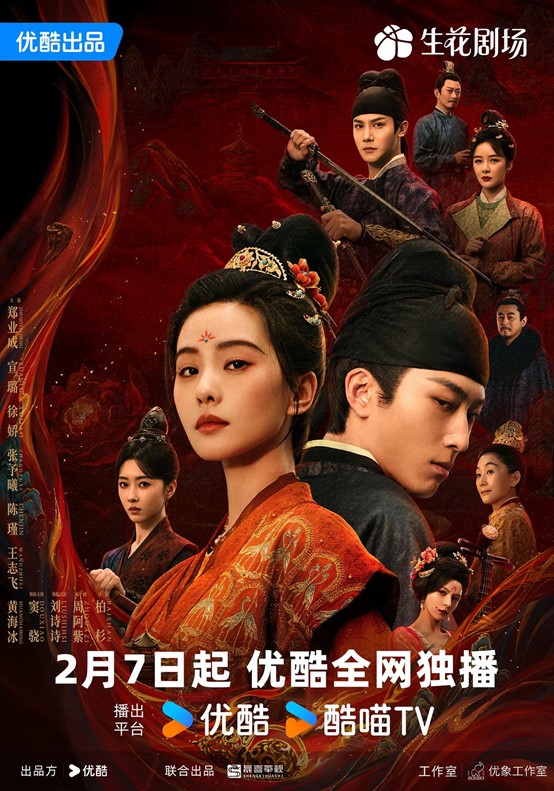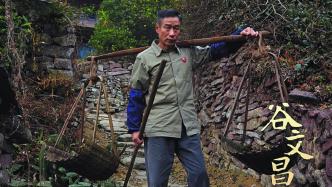
The report of the 20th National Congress of the Communist Party of China pointed out that it is necessary to "tell the story of China well, spread the voice of China well, and present a credible, lovely, and respectable image of China."
At present, "telling Chinese stories well" has become a high-frequency hot word in TV drama creation. The creation of TV dramas must follow the creative law of "finding the right topic, telling a good story, and producing a high-quality film", and it is a key step in choosing a topic. Taking the promotion of the main theme and realistic themes as an example, looking back at the high-quality dramas of national dramas in recent years that have won both word of mouth and ratings, could they tell the history of the country, set up a biography for the times, and express the feelings of the people. This is not only a bright spot, but also the starting point for the innovative expression of national dramas in the new era.
A Monument to the Age of Entrepreneurship
Reform and opening up has provided a majestic impetus for socialism with Chinese characteristics, is the historical and logical starting point of socialism with Chinese characteristics, and is the "key move" to realize the great rejuvenation of the Chinese nation. As a TV series reflecting real life, it should erect a monument for it. People praised the hit drama "Dajiang Dahe" for its epic character, because it does not simply tell a story, but fully interprets an era. In this era, there are not only the ups and downs of Song Yunhui and others, the struggles of small figures such as Yang Xun, and the counterattacks of trend-makers such as Lei Dongbao. The audience who was substituted by the plot seems to be reborn once again.
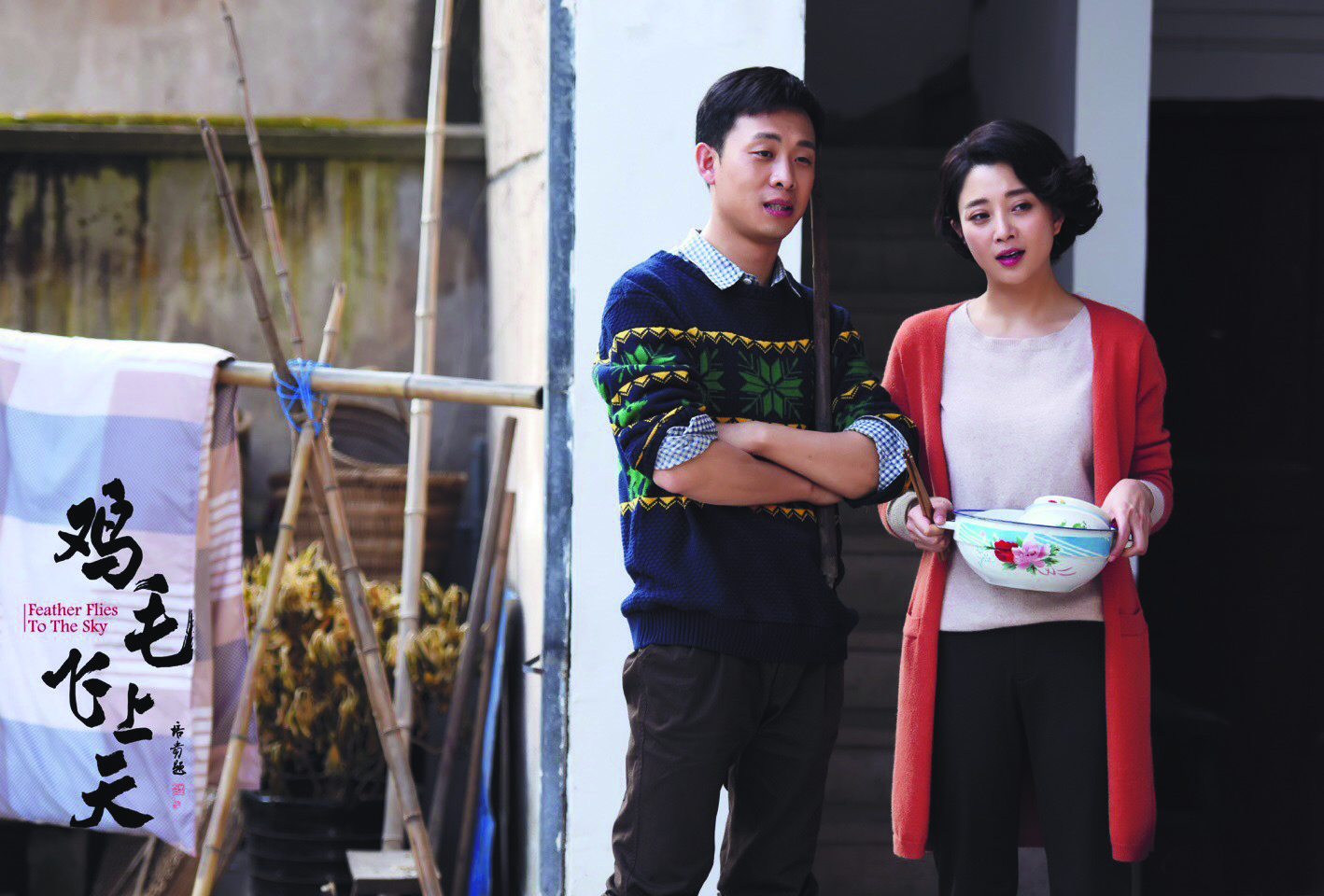
Stills of "Chicken Feather Flying to the Sky"
In "Chicken Feathers Flying to the Sky", which is also intertextual with the times, Chen Jianghe, as an orphan picked up in the snow by the villagers of Chenjia Village, has been obsessed with adults trading chicken feathers for sugar since he was a child, and learned to value and exchange goods to obtain the maximum benefit. The reform was booming, he traveled all over China, and thanks to the times, he and Luo Yuzhu, who was also proficient in business and had a very rough life experience, performed a love-hate entanglement and business legend that spanned half a century with ups and downs.
And "Entrepreneurship Age", which is based on "China's Silicon Valley" Zhongguancun Science and Technology Entrepreneurship, the protagonists Kuang Mingchou, Hong Yuqiao, Jiang Cheng and other young talents in the computer field are in the spring breeze of reform and opening up. Inspired by the "primary productive force", through the establishment of a company, a way has been created so that Chinese people can use their own brand of computers. The reform and opening up opened their horizons, realizing that science and technology not only improves life, but also changes life, and thus embarks on the pursuit of life with the ambition of living up to the times. The subject matter itself also contains such "the meaning of the question": Entrepreneurship is a process of continuous trial and error. In a sense, success is only a small probability event. What is needed here is the perseverance and tenacity of the entrepreneur.
Whether it is "The Age of Entrepreneurship", "Dajiang Dahe", or "Feather Flying to the Sky", the protagonists are all "phoenixes" of entrepreneurship. In times of crisis, relying on solidarity and hard work, and even facing corporate bankruptcy and personal imprisonment, they dare to try and make mistakes, and are willing to pay all the price for reform and opening up with the attitude of "walking to the bottom of the water and watching the wind blow". This kind of pioneering demeanor is what moved the audience when they looked back at the difficult road of reform and opening up from the episode.
Let the most beautiful retrograde shine on the screen
What contemporary China is most proud of is that the times have created batches of classic communists and the most beautiful rebels. They are the leaders of the times and the beacons of life. From Jiao Yulu, Kong Fansen, Huang Danian, Yang Shanzhou...TV people pursued them, making the real-name hero model drama popular. The protagonist in "Gu Wenchang" is an official who emphasizes "hidden achievements" and does not seek "remarkable achievements". After ten or eight years of planting trees, no results can be seen. However, he persisted for decades and finally turned the Dongshan desert into an oasis.
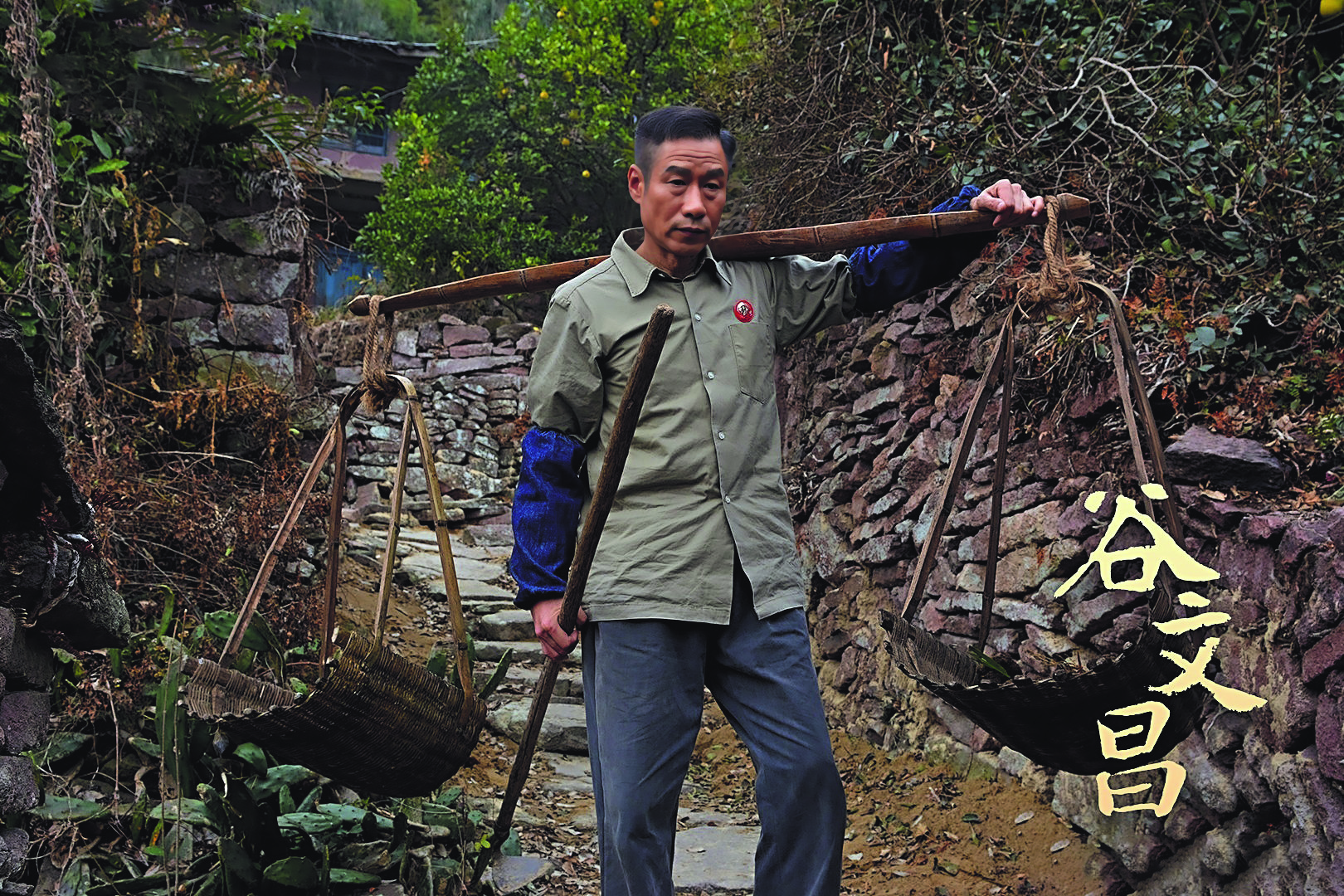
Stills of "Gu Wenchang"
The selection of the series focuses on the greatness in the ordinary, avoiding the lack of TV narrative elements with strong plots in the prototype, and carried out a triple excavation of the subject matter in a realistic way. Gu Wenchang went south to liberate Dongshan and stayed in Dongshan to become a local cadre. When he was the district head and the head of the organization of the county party committee, he encountered how to "characterize" the family members left behind when the Kuomintang retreated to the mainland. These family members have suffered great harm because they are designated as "family members of the enemy and puppets". Gu Wenchang believes that they are also victims and can "change hats" for them. And that was a political risk at the time. In the end, the superior finally approved the trial implementation of "Families of Military Disasters" in Dongshan. The second exploration of the theme of the series is wind prevention and sand control. The sandstorm in Dongshan was so severe that when the "sand tiger" came, several villages were buried overnight. Gu Wenchang "If you don't control the wind and sand, let the wind and sand bury me." After repeated defeats and hard work, Dongshan finally defeated the sand damage. In order to completely change the appearance of Dongshan, he led the masses to plant casuarinas on the island. The cold spring caused 200,000 casuarinas to die overnight. He did not believe that improving the environment was "more difficult than liberating a new China", so he gnawed down this bone.
The third excavation of the theme of the series is that Gu Wenchang led the people of Dongshan to connect the Bachimen across the sea to the mainland. He lived and boarded on the dam for a whole year, and finally the island and the land were connected. It is not difficult to see that what Gu Wenchang did in Dongshan was not only something that the predecessors dared not think about and could not do, but also something that the predecessors endured hardships and future generations took advantage of the cool. Through the in-depth exploration of the subject matter and the topic of the series, the image of a party cadre who "holds an umbrella high for the people and dares to carry the sky for the people" is ready to appear on the screen, perfectly explaining why the people of Dongshan would "worship first". Gu Gong, worship the ancestors later."
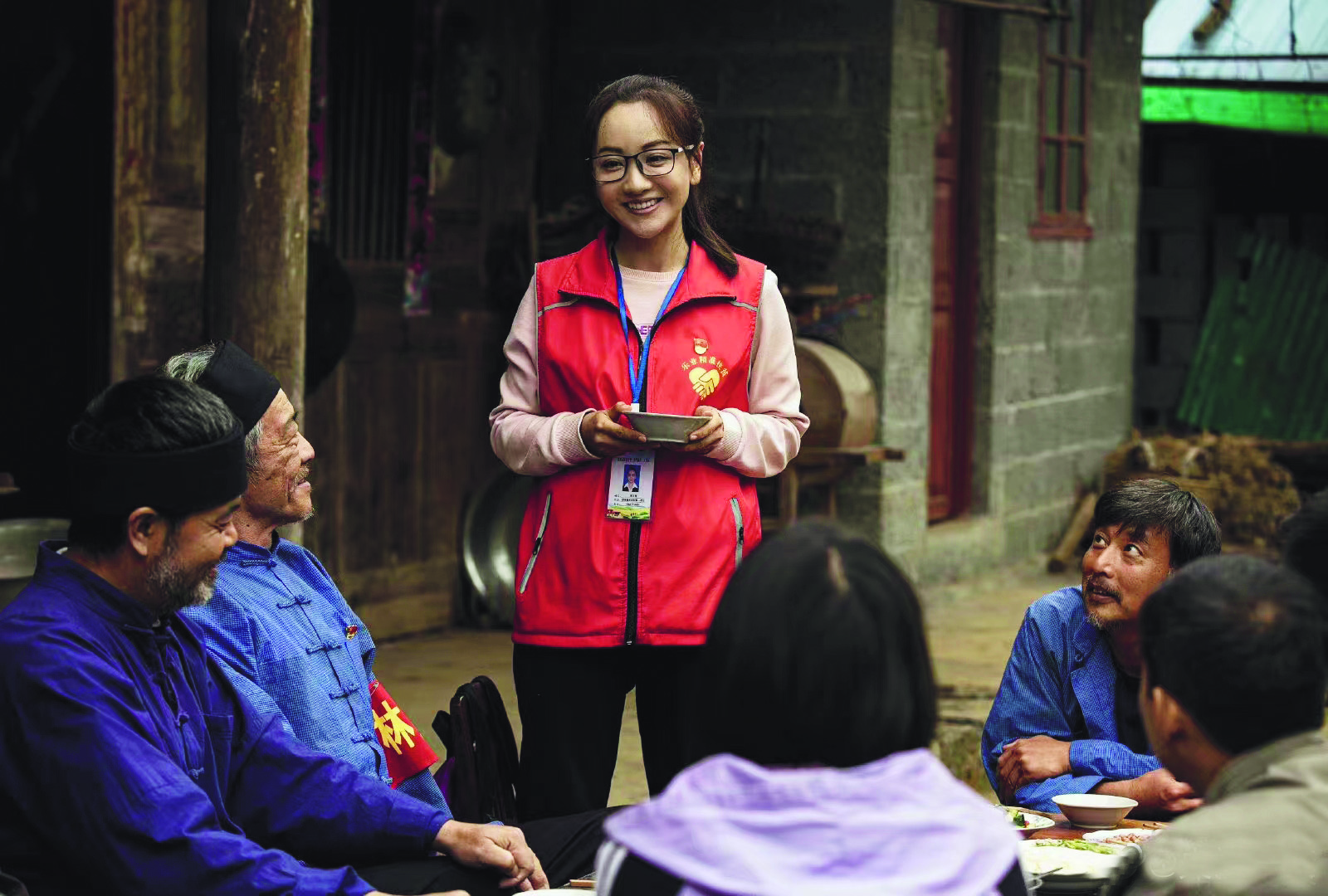
Stills of "The Daughter of the Mountain"
If Gu Wenchang shines on the screen as a "classic communist", Huang Wenxiu in "The Daughter of the Mountain" approached the audience as the "most beautiful retrograde" in the new era. The series explores Huang Wenxiu's two "retrogrades": one is to give up staying in Beijing to return to work in his hometown after graduating from Beijing Normal University with a master's degree; "Master's village official", an unmarried girl died in the work of poverty alleviation. The brilliance achieved by the most beautiful retrograde "post-80s" in a short life made hundreds of millions of viewers cry.
Playing the Morning Song of the New Development Concept
Since the 18th National Congress of the Communist Party of China, the Party Central Committee has proposed to implement the new development concept of innovation, coordination, green, openness and sharing, which has spawned a large number of themed creations. "Spring Breeze and Green River South Bank" is based on an underdeveloped county in the south of the Yangtze River with backward political ecology and natural ecology, and empowers vivid stories, so that the new development concept of "green water and green mountains are golden mountains and silver mountains" presents a unique screen charm.
The series starts from environmental protection and introduces the grand theme of green ecological construction with "a dead chicken". What is valuable is that the play did not stop at telling stories about natural ecology, but further explored the subject matter-the political ecology of Jiangnan County. Zhang Tu, the county magistrate, and Yan Donglei, the secretary of the county party committee, have different development concepts. The pollution control work was barely deployed on the first day, and it was "misfired", and less than one-third of the more than 100 remediation points were carried out. Due to the deviation of the concept of development, Jiangnan County has formed a routine of "high-profile response, negative response, lively start and calm end" for the tasks assigned by superiors over the years. The county party committee team is also inconsistent. The largest industrial enterprise in the county, Youneng Leather Industry, contributes one-third of the county's tax revenue, and is also a major environmental polluter. Due to the unsatisfactory business environment, a large number of enterprises moved out, and the development zone turned into a pig farm. Coupled with Yan Donglei's lack of leadership experience in the ruling party, it is conceivable that it will be difficult to break the situation. The contradictory settings of "full bow" and "bottom out" show the sharpness of the play's realistic creation. And the "key minority" regained their original intentions and formed a new development concept. After reaching the consensus of baton and traffic lights, Yan Donglei's "global governance" became a unique plot.
This is a drama that wants to interpret the theme and interpret a certain idea, but it refuses to imitate the old wisdom of others. Instead, it shows the "reason" in the form of rebirth in the mountains and villages, and shows the "love" with the sublimation of party spirit and human nature, so as to achieve the theme of freehand, The artistic realm of life realism, scene blending, emotion and reason interweaving.
The reason why some poverty alleviation dramas make people feel shallow in conception and dry in image is that they only illustrate public and professional poverty alleviation policies and practices, let alone those works that fall into miserable peasants and funny rural areas. All these works failed due to the lack of exploration of the subject matter. The material of "Mountain and Sea Love" is different from similar dramas. It goes back 20 years from the present, that is, Fujian and Ningxia provide assistance, and the people of Xihaigu immigrate and relocate to become the leader in poverty alleviation in the region, which makes the plot refreshing.
The unique approach of "No One Less" is that it draws on the story of the merger of the poorest village Yanzhi Village and the richest village Danxia Village to jointly build a new Danxia Village, seamlessly connecting "targeted poverty alleviation" and "rural revitalization" to form a high-quality Burn stories. The deep exploration of themes has also given birth to new types and new formats such as era report dramas.
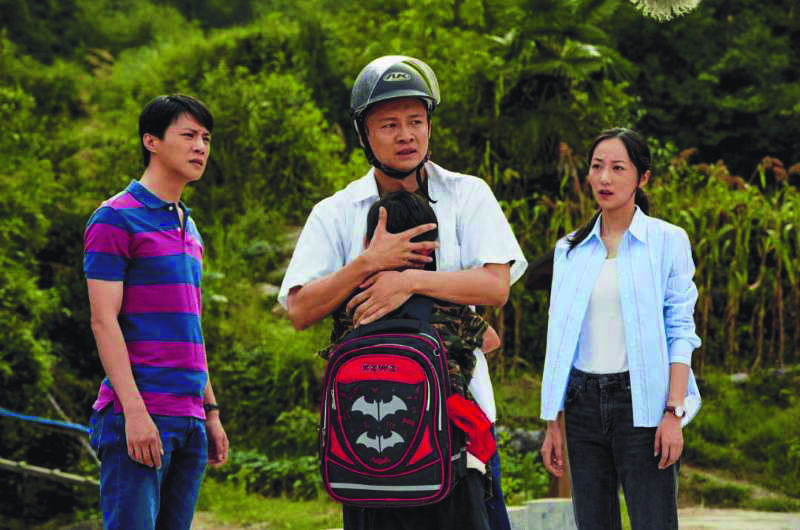
"Stone Blossom" stills
The ten units of "Stone Blossom" support the big theme with dramatic short stories. The series cuts in from multiple dimensions such as regional characteristics, poverty level, and types of problems, and condenses typical cases and characters in the fight against poverty across the country.
Jin Haoyu, the first secretary of "Ancient Village Love", under pressure, re-visited and identified the family relationships that were constantly cut and messed up, and wrote the meaning of accurate identification with actions to ensure that poverty alleviation resources and policies were sent to the hands of real poor households. "The Torch in July" focuses on the Yi village. By changing the villagers' superstitious concepts, Xianren Liang Village finally embarks on the road of becoming rich through cultural tourism by holding the Torch Festival.
"Trust" shows the process of changing a "garbage village" into a "pastoral village" and "Taobao village" in the process of eliminating the gap between poverty alleviation cadres and villagers. The themes of industrial poverty alleviation, remote relocation poverty alleviation, poverty alleviation and wisdom are expanded and extended in different units. After such a deep exploration of the subject matter, the seemingly boring poverty alleviation drama has been filmed into a warm Chinese encyclopedia of poverty alleviation.
(This article was originally published in the 4th edition of "Literary News" on March 15, 2023)

